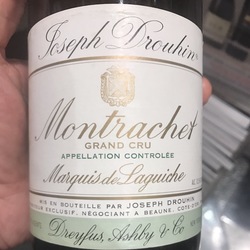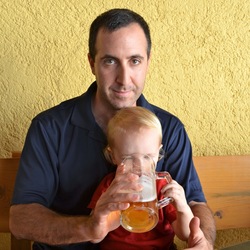Outward
Bruery Terreux
Frucht: Guava
All celebration in an ebulliently uplifting, white, cloud wall. Huge fruit cup of cherry and peach, pear and strawberry bounces from the glass, wafting outward. A funkiness evokes ripest dragonfruit, and yes, guava. Sourest lemon-orange combo pushes forward in a citrus hammer, with tart tartaric energy evoking lime and hybrid citrus fruits at various stages of ripeness. Tangy and sour while still maintaining the vestiges of a skin-and-all kumquat sweetness. Finishes dry, and acid-refreshing. — 6 years ago
Outward
Shell Creek Vineyard Valdigue 2024

Outward
Presqu'ile Vineyard Gamay 2021
Pepper and limestone on the nose. Light and zesty. Low tannin, high acid. — 3 years ago
Macallan Distillery
Edition No 4 Highland Single Malt Scotch Whisky
Aromas of gingerbread, apricot, cut red apples, lemon pith, tea biscuit and caramel. What a smooth and amazingly deft whiskey on entry; lifting off the palate like a smoldering Phoenix immolating in slow-mo as it becomes engulfed in various smokes layering endlessly outward in its bourgeoning expansion. It evokes congnac’s finest offerings, showing mixed apple and baked orchard fruits and complex spice and pastries, but cask choices leave no doubt to its whiskey-ness. All the nobility, but with the sinewy strength of a seasoned warrior. #scotch #whiskey #whisky #macallan #No4 #HighlandWhiskey — 7 years ago
Outward Wines
Shell Creek Vineyard Valdiguié
This is great. Super light, fruit. Drinks like a Morgon kind of — 10 months ago
Outward
Old Oak Vineyard Vaccarèse
Carbonic maceration? Fun but not really worth $40 — 3 years ago
Outward Wines
Bassi Vineyard Chardonnay 2020
Tremendous acidity, bright fresh mineral lemon. Only 50 cases and from a vineyard 4 miles from the ocean in Avila beach — 4 years ago
Weingut Hexamer
Birkenfelder Meddersheimer Rheingrafenberg Spätlese Riesling 2004
Tasted at a private seminar in SF with importer Terry Theise and it is showing amazingly well. Yet another example of the power of Riesling. This nearly 14-year-old Spätlese is still a toddler, not even approaching a tertiary stage any time soon. Golden straw color with great clarity, green reflections. Massive nose of smoke, slate, passion fruit, apricot and melon all coated in honey. The aromatics attack your palate from 8 inches away. 100 g/l RS, but impeccably balanced. This is what I adore about the great sweet Rieslings- the inherent sweetness lends wonderful body and texture and carries all the intensity of the fruit all the way through the finish which I find to be amazingly persistent. Loving the spice character in the mid palate and the lovely floral quality up front. This is a masterful Riesling from a top Nahe producer, and Meddersheimer is arguably one the top vineyards in this subregion. The mosaic of soil types here lend the wines a great deal of nuance and complexity and all different ripeness levels, but this is my favorite Spätlese from the Nahe at the present moment due to its outward and flamboyant nature. Very versatile food wine with great individual character. — 8 years ago









Matthew Cohen
N: chenin
P: delicious. Good fruit. Balanced. — 4 months ago